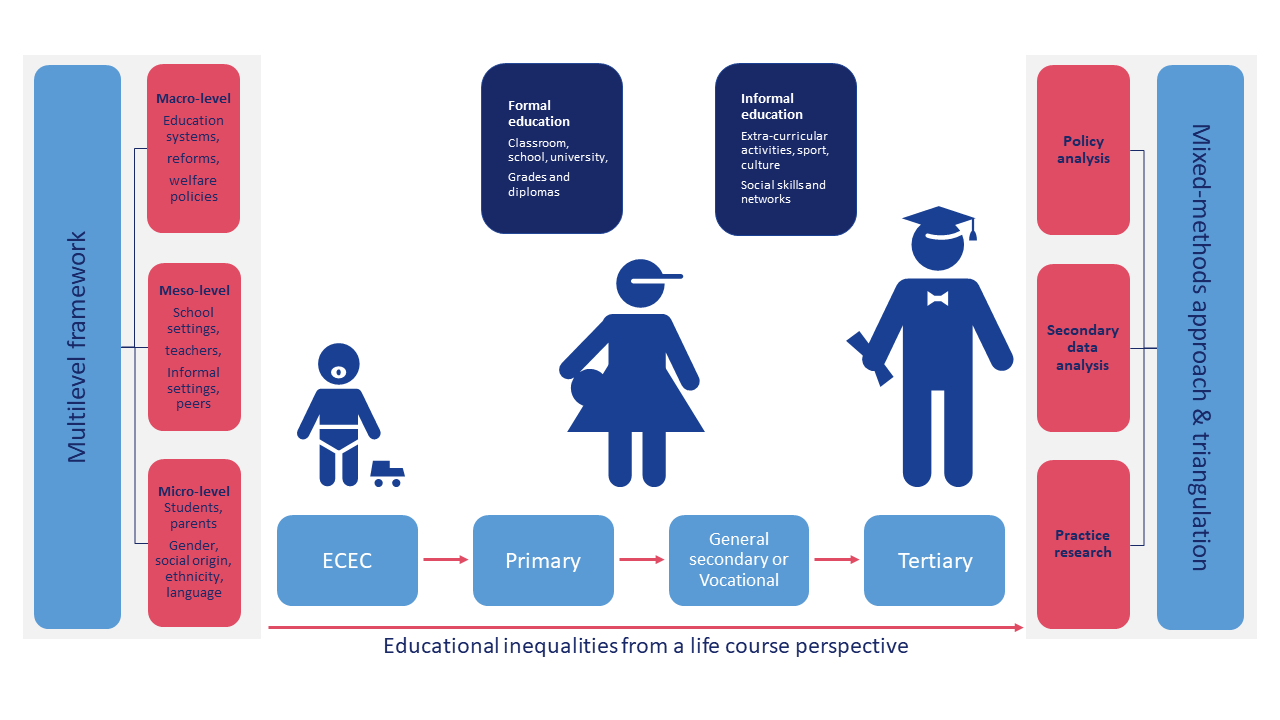Method
PIONEERED employs an integrative methodological framework centring on a life-course focused perspective integrating different levels of origins of educational inequalities from childhood to adulthood.
Educational inequalities develop through complex dynamics between contextual and individual factors that are subject to temporal developments (change and stability). Thus mechanisms behind educational inequalities relate to several levels, the macro level of society, the meso level of institutions and the individual (micro) level. For example, policies shape school and classroom structures which shape individual learning processes and individual educational opportunities.
Consequently, PIONEERED relies on a multilevel framework that considers mechanisms and innovations related to the macro level (e.g. educational and social policies on country or sub-levels), meso level (e.g. school institutional settings, transition procedures) and micro level (teachers, students, parents, e.g. family resources, students’ attitudes). This includes a special focus on how policies intentionally or unintentionally shape educational settings – including formal (e.g. schools) and informal (e.g. family and peer group environments) environments – and how the interplay between institutional conditions and individual characteristics and actions of the children and young adults become a source of advantages and disadvantages at transition points and trajectories.
